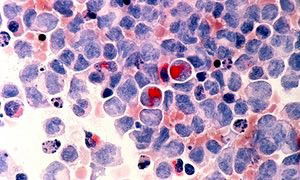Health
Experimental ovarian cancer treatment 'promising', say researchers

London, June 3: An experimental new treatment for ovarian cancer led to a dramatic shrinking of tumours in a small, early-phase study, the media reported on Saturday.
Researchers from the Institute of Cancer Research and the Royal Marsden NHS Foundation Trust in London were testing a drug, known as ONX-0801, for safety, but found that tumours in half of the 15 women studied shrank during the trial, a response they called, "highly unusual" and "very promising", reports the Guardian.
The drug mimics folic acid to attack ovarian cancer cells.
Researchers believe the drug could hold promise for women whose ovarian cancer has stopped responding to traditional treatment.
Additionally, because the drug specifically targeted cancer cells, it did not show the side effects typically associated with chemotherapy such as infections, diarrhoea, nerve damage and hair loss.
"The results we have seen in this trial are very promising," the Guardian quoted Udai Banerji, the leader of the study and deputy director of the drug development unit at the Institute of Cancer Research, as saying.
"It is rare to see such clear evidence of reproducible responses in these early stages of drug development."
However, Banerji warned that the treatment is still in its trial stage.
The five-year survival rate for all ovarian cancers is 45 per cent.
Between 2008 and 2010 in England, 36 per cent of the more than 14,000 women diagnosed with ovarian cancer died in the first year. More than 1,600 died in the first month, according to Pubic Health England.



































